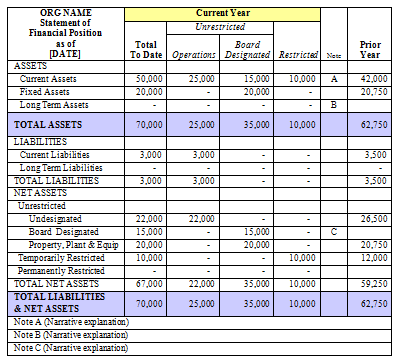Content

In the US, there are strict rules about reporting the issuance and transfer of bearer bonds. Instead, bearer bonds are physical certificates can you still buy bearer bonds that aren’t tied to anyone. This means that they can be given to someone else simply by exchanging the physical certificate.
However, because bearer bonds are unregistered, buyers might not know when bearer bonds get called. With bearer bonds, there is a maturity date on which the bond owner gets back the principle he/she has invested. To receive this, the bondholder has to present the physical certificate to the bank. Sometimes, these bonds can be redeemed before the maturity date if they are ever “called” before completing the maturity date.
What are the Differences between Bearer Bonds and Registered Bonds?
Unfortunately, this does not work in real life because no reputable bank and certainly no bank in a high-quality jurisdiction like Singapore is going to take your bearer shares. With this change, you could say that mobile bearer shares died as of May 8 of this year. Others will argue that all they want is privacy, but the privacy that people are generally seeking with bearer shares just doesn’t exist anymore.
- As with other fixed-income instruments, money raised by the issue of bearer bonds is used to fund the growth and operations of the enterprises or government.
- If you are the holder of bearer bonds, you may find that there are only a few banking agents still around that will cash your coupons, and you may have to send them to a processing center to get paid.
- If you do want to buy bearer bonds you would have to do so outside of the United States.
- Registered bonds, whose ownership is recorded in a central database and moved using an electronic system, took their place.
- However, it has a different issue date and usually a different price.
The coupons submitted to an agent or banker are acknowledged immediately, and payment is made. They were coupon bonds, with coupons attached to the bond that had to be mailed in by the bondholder. The bond owner’s name was entirely unknown, offering total anonymity as to who was receiving the payment. The use of bearer bonds was often for illegal activities, such as tax evasion. Since almost all the securities are issued in book-entry form, they are registered in the investors name electronically and therefore there is no issue of a physical certificate. A registrar tracks the names of each registered owner and then ensures that the bond owners receive all interest payments, and the stockholders receive the cash and stock dividends.
What are registered bonds?
And even if you found a bank that would take your bearer shares, bank account reporting requirements for US and other western citizens mean that you still have an obligation to report whatever is in that account. This immobilization has eliminated the risks involved with bearer shares to a large degree. Plus, banks don’t have to wonder what is going to happen with their assets.
- But I knew that underneath that bad reputation, there was a way to legally go offshore and still increase my tax freedom.
- You can learn more about the standards we follow in producing accurate, unbiased content in oureditorial policy.
- This can be avoided by attaching proper documentation to the owner’s will.
- There are still people who believe what they watch on TV and in the movies and think that they can just get a bearer shares company and live tax free.
- In the end, a bearer bond is a type of bond that shows that the issuer owes the bondholder money.
This means that ownership of the share is determined entirely by the physical possession of a piece of paper. The only way of knowing who the owner is, is if they are holding the stock certificate in their hand. Bearer bonds were subject to theft and loss in the same way cash would be. That’s why people usually don’t carry around tens of thousands of dollars in cash with them.
Required Minimum Distribution: Everything You Need To Know
When this book-entry is sold, the name of the registered owner is changed. In the United States, the Tax Equity and Fiscal Responsibility Act of 1982 substantially curtailed the issue of debt in bearer form. In contrast, registered bonds retained the tax-exempt treatment. A. Bearer bonds, as the name implies, are the property of the holder. Because the issuer maintains no records of ownership, the investor is paid only after physically presenting a bond or a bond interest coupon. In the United States, bearer bonds are a disappearing breed, since Federal law forbids their issuance by states and local government issuers of tax-exempt bonds.
Are bearer bonds illegal in the UK?
whoever physically holds the share warrant. This makes them anonymous and infinitely transferable, and an easy means of facilitating illicit activity such as tax evasion or money laundering. UK companies will be prohibited from issuing bearer shares. and have them exchanged for registered shares.
A bearer bond is a fixed-income security where the holder, not the registered owner, is the owner. The bondholder has to take the coupon interest payments attached to the bond to a bank to get paid. They fell out of favor gradually, as they outmoded by modern technology, shunned by investors concerned over their vulnerability to loss or theft, and, finally, outlawed by the government to thwart money laundering. Such bonds are held in physical form by the owner, who receives interest payments by physically detaching coupons from the bond certificate and delivering them to the paying agent. First, if stolen, their value shifts to whomever now controls the physical documents. Second, bonds are more commonly stored as electronic records, so there is no document from which coupons can be removed.
Zero-Coupon Bond
Nearly all securities are now issued in book-entry form, meaning that they are registered in the investor’s name electronically. As their ownership is not registered, the owner of a bearer bond is the person in possession of it. The articles and research support materials available on this site are educational and are not intended to be investment or tax advice. All such information is provided solely for convenience purposes only and all users thereof should be guided accordingly. This means that the bonds are registered in the name of the holder and that all interest payments are made by the issuing company directly to the current bondholder.
- Investors use this bond for hiding their income and asset by investing in high denomination bearer bonds.
- For any business that opts for equity financing, there is a certain number of shares of stock issued that allow others to invest money in the company, giving them proportionate ownership.
- With a bank, broker, or dealer, you may bid for Treasury marketable securities non-competitively or competitively, but not both, for the same auction.
- Bearer bonds do not have any registered owners, which means that the holder of a bearer bond is the owner of the bond.
Eurobonds are often issued in a bearer format, according to Nasdaq. These are bonds issued in a currency other than the issuing country’s currency and can be purchased through a brokerage. Bearer bonds are particularly risky because they are not assigned to any individual, making them untraceable. This means that if the bond is stolen the person who holds it can cash it in without proof of ownership.
of a Negotiable Instrument
The bondholder is required to submit the coupons to a bank for payment and then redeem the physical certificate when the bond reaches the maturity date. While bearer bonds are not illegal per se, they have become less popular in recent years due to security issues and the risk of fraud, theft, and money laundering. The ownership of registered bonds is recorded in a central database and transferred through an electronic system, which is safer and more open.

While at the same time benefiting from the income stream of the coupon payments. Bearer bonds belonged to a pre-digital era, although they were still around before the digitization of assets became widespread. The 1982 TEFRA act foresaw many changes to the US fiscal system, and bearer bonds were seen as an easy way for individuals to escape government control with their money. If you still hold or found bearer bonds in your grandparent’s loft, you may try to approach the company that issued the bond. If the company no longer exists, it may have been bought by another firm. The last bearer bonds from the United States treasury have long since expired.
Are bearer bonds still traded?
Bearer bonds were popular in the past, but due to issues related to tax evasion, money laundering, and lack of investor protection, most countries, including the United States, have stopped issuing them.


Sorry, the comment form is closed at this time.